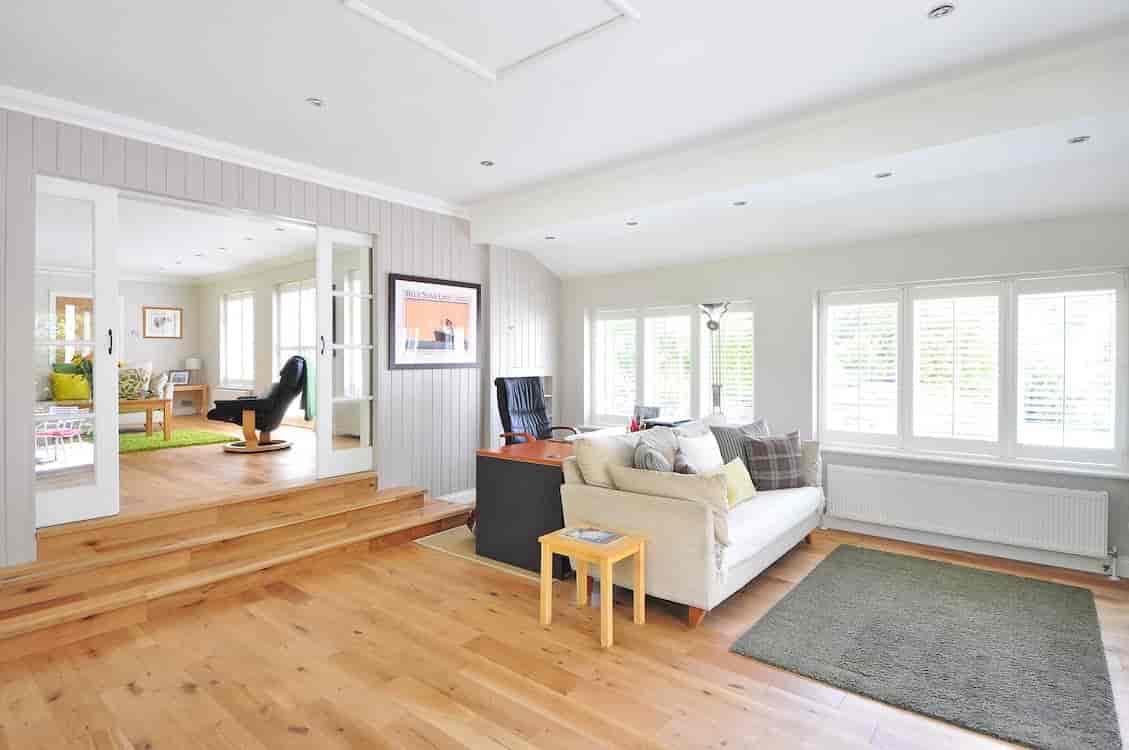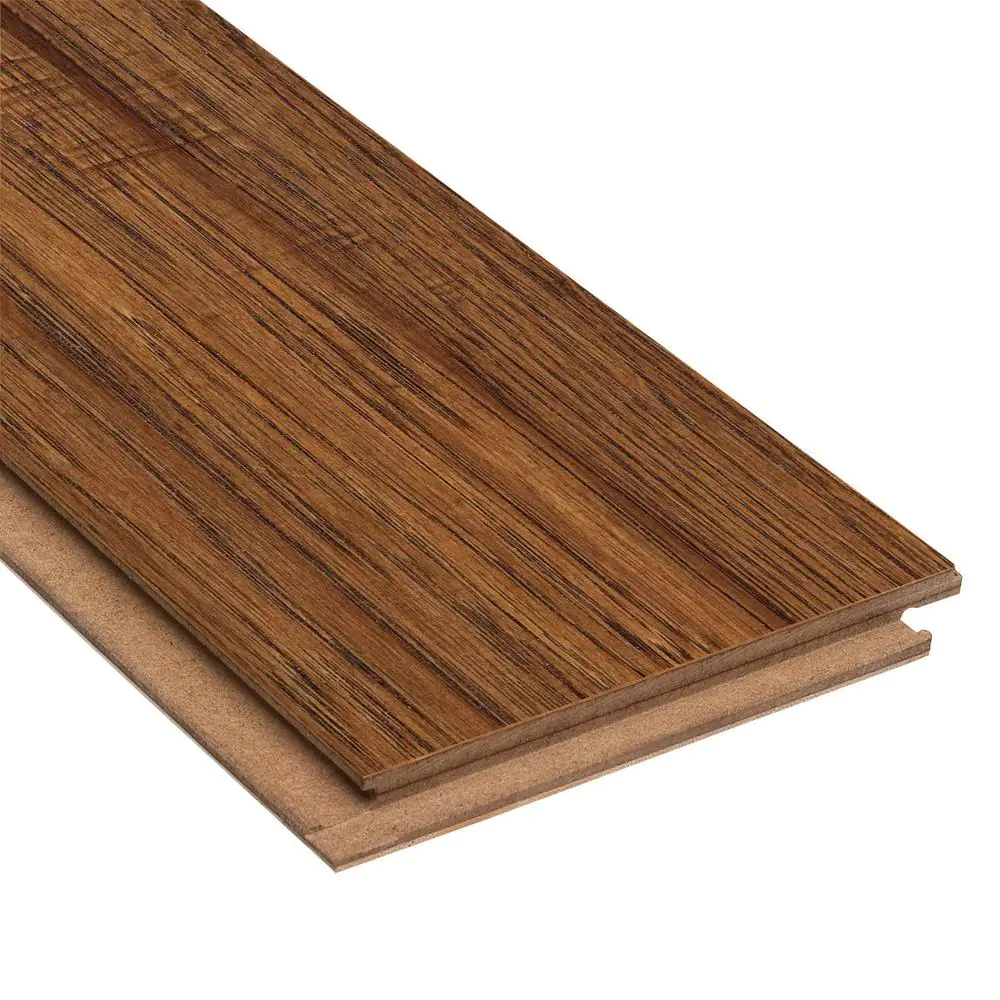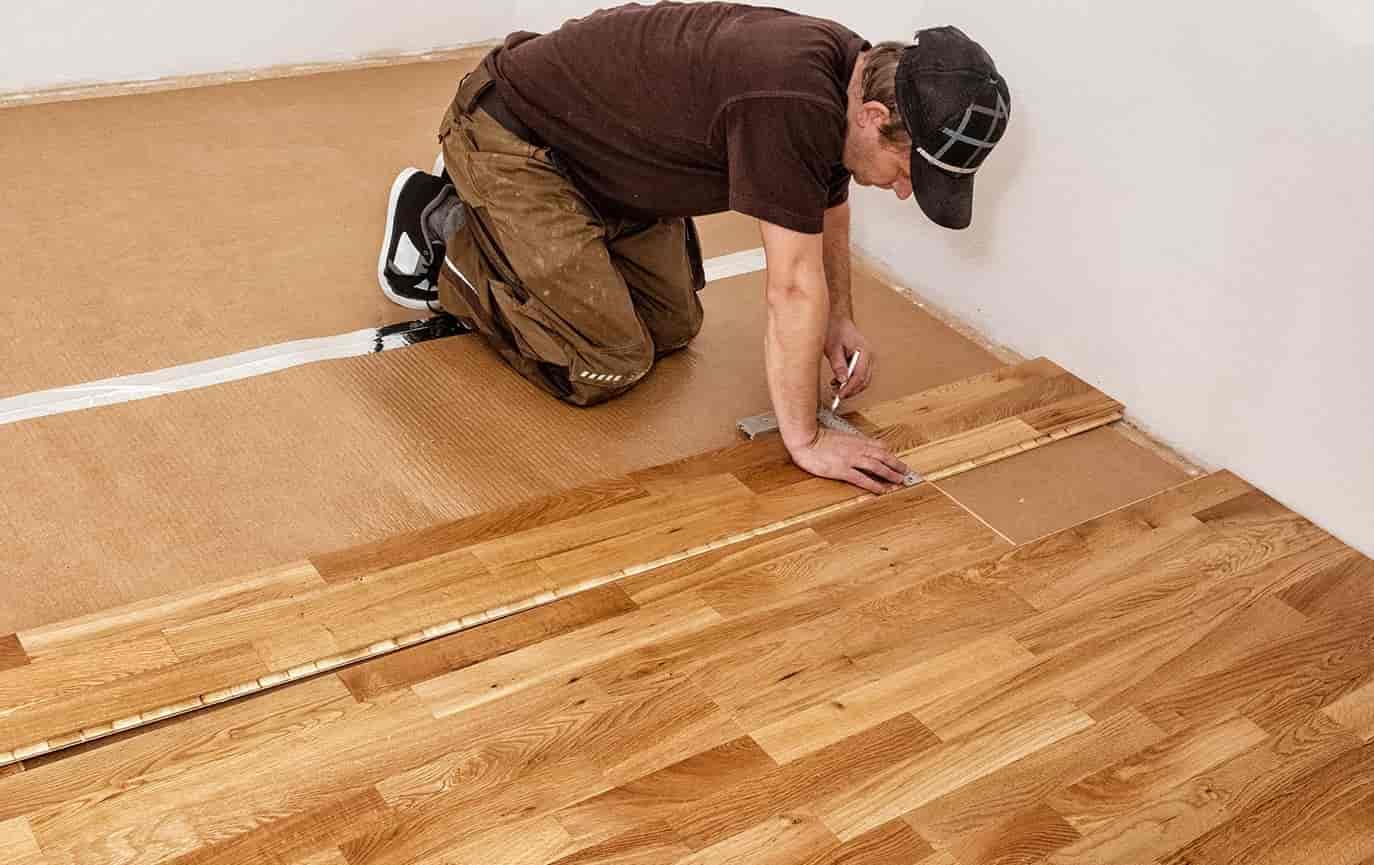
Engineered vs Hardwood Floors
Published by Folz Team Real Estate on 01/06/2023
When it comes to choosing flooring for your home, two of the most popular options you'll encounter are engineered wood flooring and solid hardwood flooring. Both have their own set of pros and cons, and it's important to understand the differences between the two in order to make the best choice for your home.
First, let's briefly go over each type of flooring.
Solid hardwood flooring is made from solid wood planks that are typically 3/4 inch thick. These planks are milled from a single piece of wood and are finished with a clear coat to protect the wood.
 Plano Marsh Oak 3/4" @ The Home Depot source
Plano Marsh Oak 3/4" @ The Home Depot sourceEngineered wood flooring, on the other hand, is made from multiple layers of wood that are fused together. The top layer is a thin layer of real wood, while the bottom layers are made from cheaper, more stable woods such as plywood or high-density fiberboard.
 Distressed Kinsley Hickory @ The Home Depot source
Distressed Kinsley Hickory @ The Home Depot sourceNow that we've covered the basics, let's delve into the pros and cons of each option.
One major advantage of engineered wood flooring is its stability. Because it is made from multiple layers of wood that are fused together, it is less prone to warping and shrinking than solid hardwood flooring. This makes it a good choice for homes in areas with high humidity or temperature fluctuations.
Another advantage of engineered wood flooring is that it is easier to install than solid hardwood flooring. Because it is made from multiple layers of wood, it can be easily cut and fit into place. This can make it a more cost-effective option for homeowners, as the installation process is typically quicker and requires less labor.
 Three Trees Flooring source
Three Trees Flooring sourceAdditionally, engineered wood flooring is typically more durable than solid hardwood flooring. The multiple layers of wood make it more resistant to scratches and dents, which can be a concern for homeowners with pets or children. It is also easier to maintain, as it can be cleaned and refinished more easily than solid hardwood flooring.
On the downside, one major disadvantage of engineered wood flooring is that it is not as long-lasting as solid hardwood flooring. Hardwood floors can last for decades or even centuries with proper maintenance and care, while engineered wood flooring has a lifespan of around 20-30 years. The lifespan of engineered wood flooring can be shortened if it is exposed to moisture or high humidity, as the layers of the flooring can start to delaminate. With that being said, it is worth noting that the lifespan of both solid hardwood and engineered wood flooring can also be impacted by factors such as the quality of the product, the level of foot traffic, and the level of care and maintenance provided.
Another potential drawback of engineered wood flooring is that it may not have the same level of natural beauty as solid hardwood flooring. While the top layer of engineered wood flooring is made from real wood, it is a thin layer that is fused to the bottom layers. This means that the wood grain is not as prominent as it is on solid hardwood flooring, which can give it a less natural look.
Finally, it's important to consider the cost of both options. While engineered wood flooring is generally less expensive than solid hardwood flooring, the cost can vary depending on the type of wood and the quality of the flooring. In general, solid hardwood flooring is more expensive than engineered wood flooring, but it may be worth the investment for homeowners who are looking for a long-lasting flooring option. In general, solid hardwood flooring can cost anywhere between $5 to $15 per square foot while engineered wood flooring can cost between $3 to $10 per square foot, depending on the quality and finish.
"Solid hardwood flooring is more expensive and may require more maintenance, but it can potentially last a lifetime if well-maintained."
In summary, both engineered wood flooring and solid hardwood flooring have their pros and cons. Engineered wood flooring is more stable, easier to install, and more durable, but it is not as long-lasting as solid hardwood flooring and may not have the same level of natural beauty. Solid hardwood flooring is more expensive and may require more maintenance, but it can potentially last a lifetime if well-maintained.